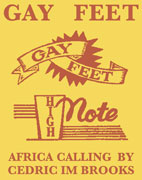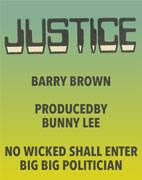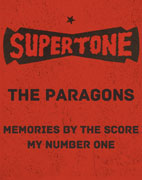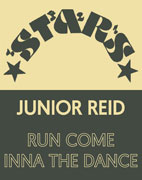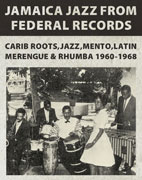Aston 'Family Man' BarrettText by Harry Hawks
Legendary bass guitarist, musical arranger and record producer who has played on thousands, literally, of Jamaican hits as one of The Hippy Boys, The Aggrovators & The Upsetters and has also produced hit records for his own Defenders, FAM'S and Cobra labels. Family Man is renowned worldwide for his integral role in shaping the musical direction of Bob Marley & The Wailers throughout their incredible international career.
Aston 'Family Man' Barrett
| Real Name | Aston Francis Barrett |
| Born | Nov 22, 1946 |
| Place of Birth | Kingston Jamaica |
| Related Artist(s) |
"Ah... it's only twenty three daughters and eighteen sons... I am the family man. I'm gifted with forty one. And twenty three grandchildren. And two great-grand." Aston ‘Family Man’ Barrett
The Barrett family lived in the same yard as legendary saxophonist Val Bennett and The Skatalites would occasionally rehearse there and Aston and his brother Carlton would listen to the band with rapt attention. Initially Aston sang and played piano in a harmony group known as The Jiving Crackerballs but he soon realised he was never going to make it as a singer and, because he had sang bass parts in the group, he decided to play the bass guitar. He built his first guitar at the welding shop which he played like an upright bass and Carlton would accompany him drumming on empty paint cans. The brothers would hang around the studios and nightclubs near their home where Aston was inspired by established bass players including Lloyd Brevett and Lloyd Spence of The Skatalites and Clifton 'Jackie' Jackson. He would listen to their bass lines and then improvise his own.
The Barrett brothers got their big break when the rhythm section of the The Hippy Boys did not show up one night to play a live date. The group's vocalist, Max Romeo, recalled that "after much reluctance" they allowed them to sit in and were so impressed with their performance that, from then on, the brothers became The Hippy Boys rhythm section. Their first recording was for Lloyd Charmers Tyrell in 1968 backing The Uniques on a version of Buffalo Springfield's 'For What It's Worth'. The song was re-made and re-modelled as 'Watch This Sound' and was a huge hit when it was released on Winston Lowe's Tramp label in Kingston and Trojan in London. The brothers began to play regularly on sessions for up and coming producers Lee 'Scratch' Perry(Lee Perry) and Bunny Striker Lee.
"The first tune that Family Man played with his brother Carlie was 'Watch This Sound' with Slim Smith. They were a team together with Glen Adams who started playing the organ and Reggie playing guitar. The Upsetters and The Aggrovators with Family Man and Carlie...
Carlie and Family Man... those brothers were my rhythm section for a while. They started in the Sixties and people used to call them 'Bunny Lee and his wrong chord musicians'. I used to say the people who buy records don't know chords like you do! But after we started making the hits everybody started using them and all the big musicians like Hux Brown then played with them." Bunny Striker Lee
The Hippy Boys, Alva 'Reggie' Lewis on guitar, Lloyd Charmers Tyrell and Glen 'Capo' Adams on keyboards, Carlton 'Carlie' Barrett on drums and Aston ‘Family Man’ Barrett on bass, were now acknowledged masters of the brand new reggae rhythm. They provided the backing for countless hit records sometimes as The Hippy Boys, sometimes as The Aggrovators, sometimes as The Upsetters but often without any credit at all. They also made a number of their own instrumental hits for Sonia Pottinger's High Note label including 'Dr No Go' and 'Reggae Pressure'. Their High Note album 'Reggae With The Hippy Boys' was a big seller in Jamaica and England and is now a highly priced and highly prized collectors item.
At the beginning of 1970 the Barrett brothers were sought out by Bob Marley to back his self production 'Black Progress', a reworking of James Brown's 1968 King release 'Say It Loud I'm Black And I'm Proud'... "we demand the right to do things for ourselves" , which was originally released on the blank rubber stamped Power Records label. And, in the summer of that year, The Wailers, Bob Marley, Bunny Livingston and Peter Tosh, began working with Lee 'Scratch' Perry on a series of recordings that would eventually take Jamaican music into previously uncharted territory. The rhythmical foundation to records such as 'Duppy Conqueror', 'Small Axe', 'Man To Man' & 'Soul Rebel' was provided by Scratch's Upsetters with the omnipresent Barrett brothers driving the music ever forward. Scratch now fashioned an entirely new sound by emphasising the 'blackness' and the rawness of The Wailers' songs and Bunny Livingston recalled many years later how important The Upsetters had been to The Wailers worldwide breakthrough.
"Well... make I tell you now. Family Man, Carlie Barrett, Reggie, Glen Adams they are The Upsetters. We began our real establishment internationally with these brothers playing the music."
Bunny Wailer Livingston
The Wailers parted company acrimoniously with Scratch in 1971 and Aston and Carlton Barrett left with them and became the core members of "The \artist|Wailers||| Band".
"Our musicians tried their best to get good. And they got to sound good! They became The Wailers band then Robbie (Shakespeare) came in when they started to play for Bob. Robbie is a student of Family Man too you know..." Bunny Striker Lee
In late 1972 Chris Blackwell from Island Records, London advanced Bob Marley & The Wailers £4000 to record an album in Jamaica. Providing advances to finance the recording of an album was standard music business procedure but placing this amount of trust in and financial commitment to a Jamaican group was unprecedented. The Wailers repaid that trust by delivering the tapes of 'Catch A Fire' to Island whose marketing strategy for the album was a masterstroke. Reggae had previously received very little positive in the UK but Chris Blackwell appealed to the vanity of record buyers (the student audience was particularly influential at this time) by promoting The Wailers and reggae as a 'real' underground and seriously rebellious music. It worked! Bob Marley & The Wailers became the toast of the UK rock press, interviews and photographs were featured in all the music papers and the group made a stunning appearance performing 'Concrete Jungle' and 'Stir It Up' on the BBC television programme 'The Old Grey Whistle Test'... previously a bastion of 'progressive' music.
"Blackwell cleverly marketed The Wailers in the manner with which he had already achieved success for island rock acts like Traffic, Cat Stevens and Fairport Convention... as an alternative to mainstream rock music... and Bob's was definitely a name to drop for the campus hip." Ian McCann
The original Wailers officially 'broke up' in January 1975 when Peter and Bunny left the group. Bob recruited The I Threes: Marcia Griffiths, his wife Rita Marley and Judy Mowatt as his new backing singers and, together with Family Man, Carlie & Earl 'Wire' Lindo on keyboards, they became known as Bob Marley & The Wailers. The group opened their two triumphal London concerts in the summer of that year with 'Trench Town Rock' and Island released the 'Live At The Lyceum' album in time for Christmas. The slow, churning on stage rendition of 'No Woman No Cry' from the Lyceum concerts gave Bob Marley & The Wailers their all important, long awaited international hit single and brought the sound of the Kingston ghetto and the power of reggae music to the wider world. For the rest of the decade Bob Marley & The Wailers worked tirelessly and ceaselessly and their music and message continued to move onwards and upwards reaching ever deeper depths and higher heights. In April of 1980 Bob Marley & The Wailers played at the now legendary Zimbabwe Independence Day Concert in Salisbury (now Harare) and in June they played to an audience of 100,000 fans in Milan's San Siro stadium: the band's largest ever audience.
However, Family Man somehow managed to find the time during this period to also produce a superb selection of records. These included the truly classical 'Love Thy Neighbours' by Vivian 'Yabby U' Jackson, the sole release on Aston Barrett's Defenders label, its Nyahbhingi driven instrumental counteraction 'Distant Drums' on FAM’S, the blistering instrumental 'Eastern Memphis' on Cobra, 'Work' and 'Guided Missile' on Tuff Gong and two astonishing remixes of Wailers Wail N Soul M outings 'Trouble On The Road Again' re-titled 'Trouble Dub' and 'Feel Alright' re-titled 'Dub Feeling' released back to back on FAM’S. Family Man was never a prolific producer but his small, but perfectly formed catalogue, is every bit as important as his work as a musician.
After Bob Marley's untimely death from cancer on 11th May 1981 and the murder of Carlton Barrett on April 17th 1987 Family Man bravely soldiered on. The Wailers Band remained active, although there have been numerous changes in the line up, and Family Man is now the only member to have played with Bob Marley. He has continued to lead and tour the world with The Wailers Band despite a number of highly publicised court cases with the Marley family and Island Records regarding alleged unpaid royalties. He wryly commented "in business you do not get what you deserve... only what you negotiate" and Family Man continues to "keep the spirit of Bob Marley alive through the reggae music". The Wailers Band are currently touring (Summer 2014) and performing Bob Marley & The Wailers 'Legend' compilation album in its entirety. Global sales of 'Legend' are estimated at between twenty five to forty million since its initial release thirty years ago...
"I just keep playing the music... keep making the music. I am the one who is the architect of reggae". Aston ‘Family Man’ Barrett
Sources:
Naoki Ienaga: Interview with Bunny 'Wailer' Livingston Kingston, Jamaica 19th October 2012
Noel Hawks & Jah Floyd: Reggae Going International 1967 to 1976 The Bunny Striker Lee Story Jamaican Recordings Publishing 2012
David Katz: People Funny Boy The Genius Of Lee 'Scratch' Perry Payback Press 2000
Ian McCann: The Complete Guide To The Music Of Bob Marley Omnibus Press 1994
Timothy White: Catch A Fire The Life Of Bob Marley Elm Tree Books 1983
Date Added: Nov 30, 2016
Copyright (C) 2024 Dub Store Sound Inc.











